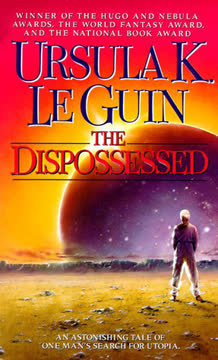Key Takeaways
1. The end of the oil era is approaching, necessitating a transition to new energy sources
"We live today in a world completely dominated by energy."
The oil dilemma. For over a century, oil has been the lifeblood of modern civilization, powering our transportation, industry, and economic growth. However, we are approaching a critical juncture where global oil production may soon peak and begin to decline, even as demand continues to rise. This looming supply-demand mismatch threatens to destabilize the global economy and geopolitical order.
The search for alternatives. As conventional oil sources become harder to find and more expensive to extract, the world is being forced to look for alternative energy sources. These include:
- Unconventional oil (tar sands, shale oil)
- Natural gas
- Renewable energy (solar, wind, biofuels)
- Nuclear power
- Hydrogen fuel cells
The transition to these new energy sources will be one of the defining challenges of the 21st century, requiring massive investments in new technologies and infrastructure.
2. The geopolitics of oil have shaped global power dynamics and conflicts
"For now, we must take the facts as they are."
Oil and power. Control over oil resources has been a key driver of international relations and conflicts for decades. Major oil-producing nations, particularly in the Middle East, have wielded outsized global influence due to their ability to impact oil supplies and prices. This has led to:
- Formation of OPEC as a cartel to control oil prices
- U.S. military interventions to secure oil supplies
- Tensions between oil-producing and oil-consuming nations
The changing landscape. As oil's dominance wanes, we may see a shift in global power dynamics. Countries with large renewable energy potential or control over critical materials for new energy technologies may gain influence. However, the transition period is likely to be fraught with geopolitical tensions as nations compete for dwindling oil resources and jockey for position in the emerging energy order.
3. Climate change is an urgent threat driven by fossil fuel consumption
"Climate change is arguably the most serious crisis ever to face industrial society."
The carbon problem. The burning of fossil fuels releases carbon dioxide and other greenhouse gases that trap heat in the atmosphere, leading to global warming. The consequences of unchecked climate change could be catastrophic:
- Rising sea levels threatening coastal cities
- More frequent and severe weather events
- Disruptions to agriculture and food supplies
- Mass extinctions and ecosystem collapse
The challenge of decarbonization. Addressing climate change requires a rapid transition away from fossil fuels to low-carbon energy sources. However, this presents enormous technical, economic, and political challenges. We must find ways to:
- Scale up renewable energy technologies
- Improve energy efficiency across all sectors
- Develop carbon capture and storage technologies
- Overcome resistance from fossil fuel industries and nations
4. Natural gas is emerging as a potential bridge fuel to a cleaner energy future
"Gas is widely touted as a 'bridge' fuel—the one existing fuel that can simultaneously power much of our current energy economy and drive the transition to a more ideal system in the future."
The gas advantage. Natural gas offers several benefits as a transitional fuel:
- Lower carbon emissions than coal or oil
- Abundant global reserves
- Compatibility with existing infrastructure
- Flexibility for power generation
Challenges remain. Despite its potential, natural gas faces obstacles:
- Methane leakage reducing its climate benefits
- High costs of LNG infrastructure
- Geopolitical tensions over gas resources
- Competition from increasingly cheap renewables
The role of natural gas in the future energy mix remains uncertain and hotly debated among experts and policymakers.
5. Renewable energy technologies are advancing but face significant challenges
"Solar is the only technology that could provide twenty-eight terawatts of clean power by 2050 without breaking a sweat."
The renewable promise. Renewable energy sources like solar and wind offer the potential for clean, abundant, and increasingly affordable energy. Technological advances and economies of scale have dramatically reduced costs in recent years. Benefits include:
- Zero carbon emissions during operation
- Decentralized and resilient energy production
- Potential for energy independence
Hurdles to overcome. Despite rapid progress, renewables face significant challenges:
- Intermittency requiring energy storage solutions
- High upfront costs and need for subsidies
- Integration into existing grids
- Land use and environmental concerns
- Political and economic resistance from fossil fuel interests
The speed and scale of renewable energy adoption will be crucial in determining our ability to address climate change and energy security.
6. Energy efficiency and conservation are crucial but often overlooked solutions
"The best form of conservation is the stuff that makes so little difference to the quality of energy services delivered that you don't even notice it."
The efficiency imperative. Improving energy efficiency is often the quickest, cheapest, and cleanest way to address energy challenges. Potential benefits include:
- Reduced energy demand and costs
- Lower carbon emissions
- Improved energy security
- Job creation in efficiency-related industries
Barriers to adoption. Despite its potential, energy efficiency faces obstacles:
- Lack of awareness and information
- Split incentives between building owners and occupants
- High upfront costs for efficiency upgrades
- Rebound effects where efficiency gains lead to increased energy use
Overcoming these barriers will require a combination of education, incentives, and regulations to drive widespread adoption of energy-efficient technologies and practices.
7. Developing nations face unique energy challenges that impact global security
"Energy poverty is in fact emerging as the new killer in developing nations, the root cause of a vast number of other problems, and perhaps the deepest divide between the haves and have-nots."
The energy poverty trap. Billions of people in developing countries lack access to modern energy services, trapping them in poverty and limiting economic development. Consequences include:
- Reliance on dirty and dangerous traditional fuels
- Health problems from indoor air pollution
- Limited educational and economic opportunities
- Deforestation and environmental degradation
Global implications. Energy poverty in developing nations has far-reaching impacts:
- Increased global carbon emissions as countries turn to cheap fossil fuels
- Political instability and conflict over scarce energy resources
- Mass migration driven by climate change and lack of economic opportunity
Addressing energy poverty is crucial for global development and security, but must be balanced with climate concerns.
8. The transition to a new energy economy will be complex and potentially disruptive
"The end of oil is arguably the most serious crisis ever to face industrial society."
A multifaceted challenge. The shift to a post-oil energy system involves far more than just replacing one fuel with another. It requires:
- Massive investments in new infrastructure
- Fundamental changes to transportation systems
- Retraining workers and reshaping economies
- Overcoming political and social resistance to change
Potential for disruption. The energy transition could lead to significant economic and social upheaval:
- Stranded assets in the fossil fuel industry
- Geopolitical tensions as power dynamics shift
- Job losses in traditional energy sectors
- Rising energy costs during the transition period
Managing this transition effectively will be crucial to maintaining economic stability and social cohesion in the coming decades.
Last updated:
Review Summary
The End of Oil receives mixed reviews, with many praising its comprehensive analysis of the energy industry and future challenges. Readers appreciate Roberts' balanced approach, detailed research, and accessible writing style. The book explores peak oil, alternative energy sources, and geopolitical implications. Some criticize its dated information and repetitive sections. While some find it pessimistic, others view it as cautiously optimistic about future energy solutions. Overall, it's considered an informative read on the complexities of the global energy economy and the need for sustainable alternatives.
Similar Books










Download PDF
Download EPUB
.epub digital book format is ideal for reading ebooks on phones, tablets, and e-readers.




